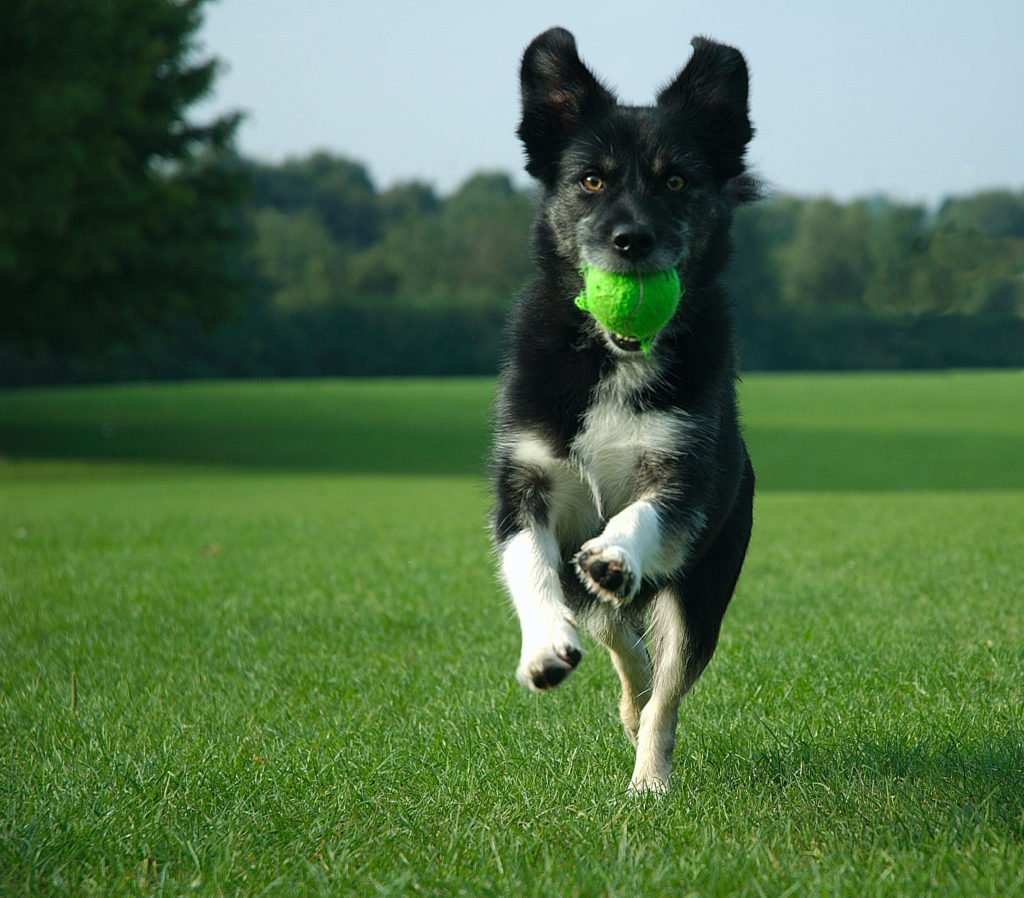Summertime is a wonderful time for pets to get outdoors, explore, climb and run. The great outdoors also pose many hazards for pets. Take a few precautions this year to make sure your Fido or Fifi is comfortable and safe all summer long.

1 Keep Them Hydrated
Pets need water as much as people, so make sure there’s plenty of cool, fresh water available for them wherever you go. Buy a collapsible pet water dish that’s convenient to carry and can be filled with a water bottle. During long walks, you can use one of these bowls to give your pet a water break, when you need a chug yourself.
2 Use a Pet Door
Forgetting a dog or cat that’s been let outside in the heat can be fatal. Look into pet doors that open only for your pet, using an electronic device activated when the pet’s collar comes near.
3 Protect Paws
Burned feet pads are no fun for pets, with blisters causing problems for days. Invest in pet socks (especially for dogs) and keep dogs away from hot pavement or other hard surfaces.
4 Hot Cars Kill
Even with the windows open (but not enough to let a pet jump out), pets can die in hot cars. Don’t leave pets in a car even for a few minutes – you might get sidetracked and wind up talking or working for 15 minutes or more without remembering your kitty or pooch.
5 Prevent Pests
Outdoor pests get a free ride into your house on your cat or dog. Use a good flea collar and bath additive to keep bugs at bay. Remove any standing water in your yard (such as in birdbaths or puddles) to prevent insects from hatching.
6 Inspect Fencing
Make sure any fencing you have is secure, that gate doors close and latch tight, and that animals can’t get out (or in) by going underneath gaps at the bottom of the fencing.
7 Inspect Leashes
Retractable leashes are so dangerous they are not legal in some areas. All it takes is one squirrel to send your dog into traffic; invest in a good leash this summer.
8 Use Sunscreen!
Pets can sunburn, too, especially if they have short hair and light pigment. Talk to your vet about pet sunscreens and learn how and when to apply them.
9 Don’t Shave That Hair
You might think trimming long fur will keep your pet cooler, but it actually does the opposite. Fur acts as an insulator, according to the ASPCA, which recommends having a professional groomer who will know how to do a summer trim based on the type of pet you have.
10 Avoid Afternoon Walks
Afternoons are the hottest times of the day, turning sidewalks, streets and paths into frying pans. Walk your dog in the morning or evening to avoid heat stress and burned feet pads.
11 Re-Think Your Thermostat
If you’ve got a programmable thermostat that turns off the air conditioning while you’re at work, ask your vet what the best temperature is for your pet during the day. Most pets don’t need a cold house and will do just fine if you want to lower the AC a bit while you’re at work to lower your utility bills. Don’t forget to close drapes, curtains and blinds to avoid heating up your home.
12 Avoid Swimmer’s Ear
Ear infections are a common and painful problem for pets. Dry their ears after a swim or bath and keep ear medicine on hand for quicker relief when pets develop problems.
13 Be Careful During Cookouts
Leash or fence in pets when there are hot coals, gas grills and sharp utensils on the deck or patio. Pets that are underfoot in areas from the house to the deck can cause serious injuries for pets and people. Don’t let people feed pets any cookout foods or let pets get at items that have been sitting in the sun (while the humans have left to play). To keep pets happy, have food treats ready to hand to pets to make them feel part of the event.
14 Plants Can Harm
Know what types of plants you have in your yard and keep pets away from colorful, attractive plants that might be toxic, such as Azaleas.
15 Avoid Fireworks
Loud noises can traumatize pets for many years to come, especially puppies. Don’t take pets to fireworks displays unless you’ve seen them enjoy them before. Create a safe haven in your home (maybe with a pheromone wipe or spray), where pets can go for familiar surroundings when they’re upset.
16 Hide Chemicals
As you perform spring cleaning, wash your car and care for your lawn and garden, make sure to keep chemicals and fuels out of reach of curious pets.
17 Know Heat Exhaustion Signs
When pets get overheated, they will start to pant, have shallow breathing, start to drool, get bright red or dry gums, have weak legs or show stomach problems. Give pets chilled water, get them indoors and put a cool, wet cloth on a pet to help gradually lower body temperature. Don’t shock an overheated pet by dropping it in a cold pool or bathtub.